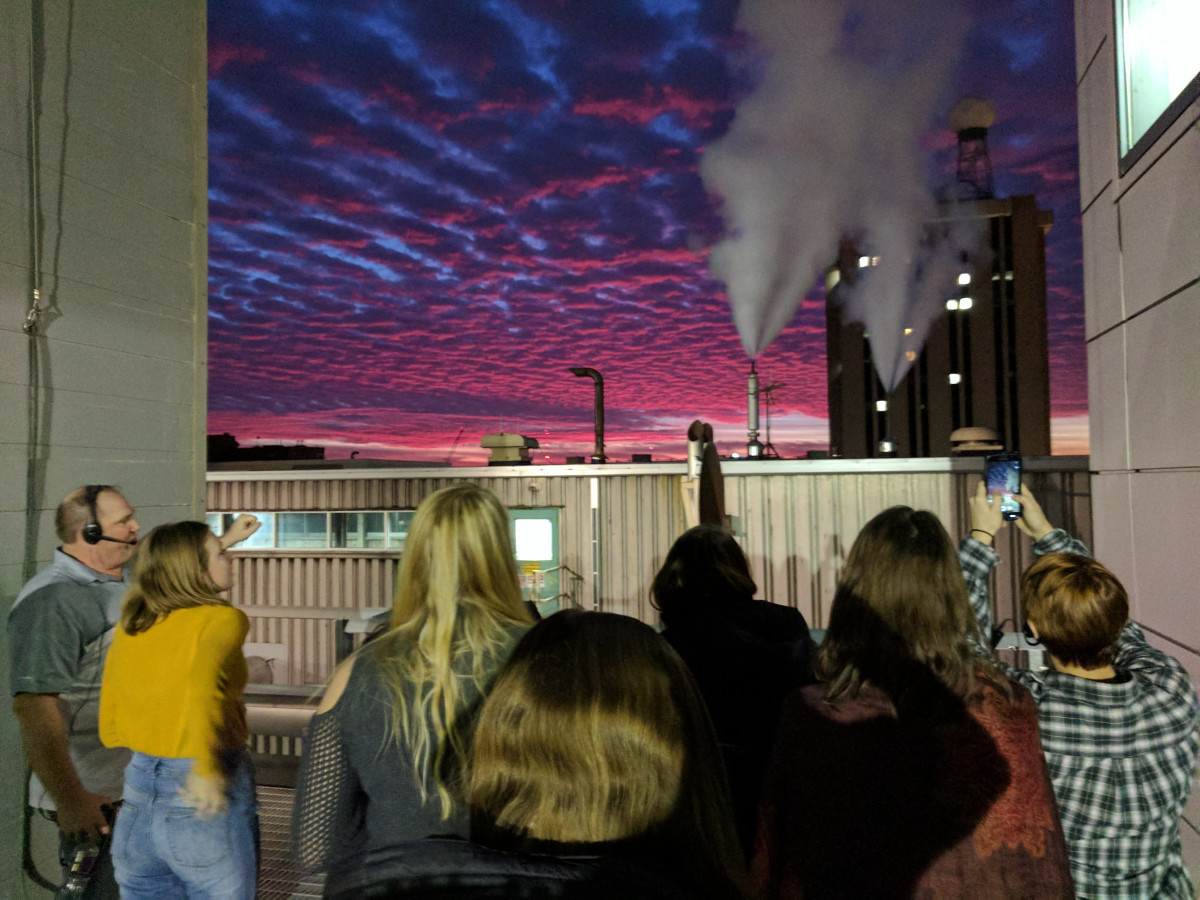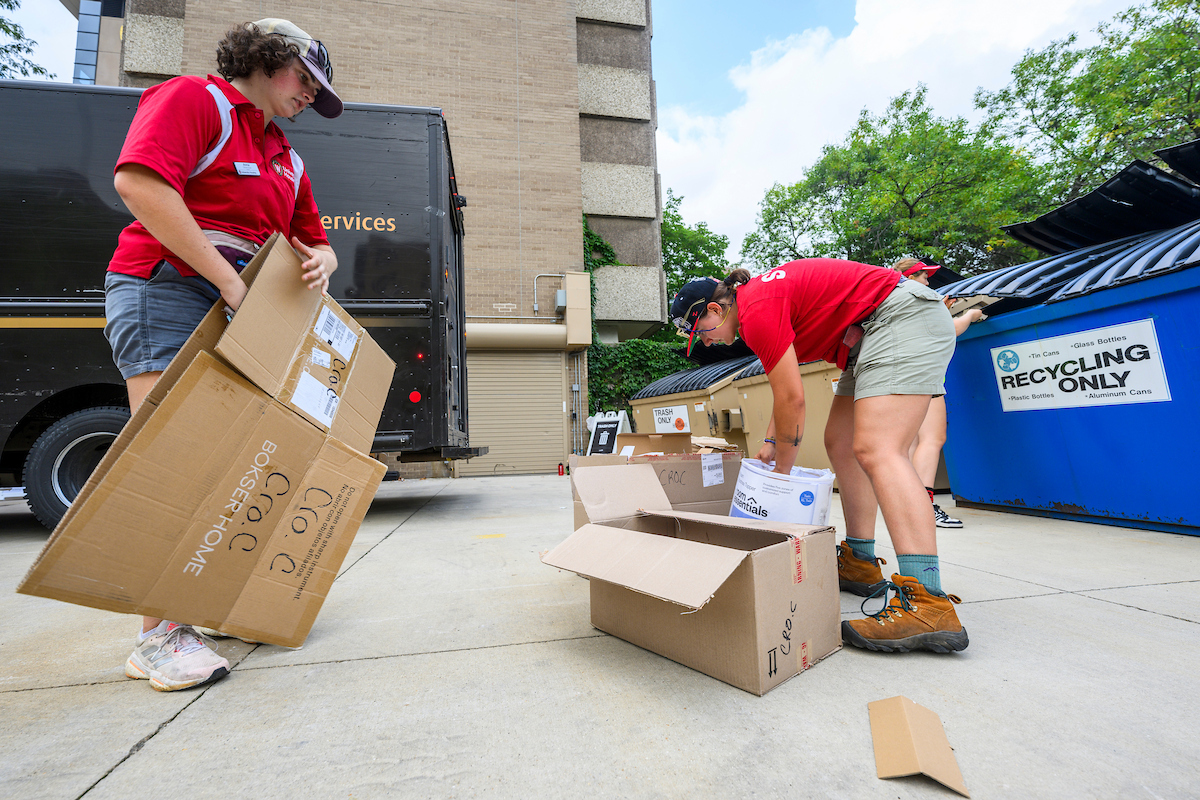UW sustainability courses range across many fields of study

In 2012, the College of Letters and Sciences released an article titled, “Growth field: Environmental studies a ‘college major with a future.’”
Were the author and people in this story correct? Yes, they were.
The University of Wisconsin–Madison in 2025 boasts more than 500 courses that cover environmental topics within their curriculum. Students can explore sustainability-focused courses that intersect with a variety of disciplines.
While enrollment rates for the environmental studies major and certificate have remained steady from 2020 to 2025, there has been a 148% increase in enrollment for the sustainability certificate.
“A lot of people just think of sustainability as environmental protection,” said UW–Madison junior John Ernst, a student intern with the Office of Sustainability at UW. “But it’s so much more.”
Ernst said that he and other Office of Sustainability interns guide prospective students toward incorporating environmental science within their own disciplines.
“When you can understand that intersection across disciplines, you can really see how sustainability fits into every college student’s interest,” said Ernst.
Audrey Davies, a former student intern for the Office of Sustainability and now a Clean Energy Project Assistant, echoed Ernst’s words.
“We must connect people, the planet, and profit,” said Davies, also called the “three P’s” of sustainability. With this definition, Davies said that sustainability can be applied to any area of education.
Davies said, “I have firsthand witnessed how people in other disciplines have been thankful for a sustainability-related course, especially since it is so different from what they are usually expected to take.”

Highlighting campus sustainability efforts
Environmental studies professor Tim Lindstrom assists the Office of Sustainability as the student intern program manager. He says it’s important to engage students with local examples and experiences.
“Sustainability is such a nebulous concept that tends to engage with ‘super wicked’ problems that can feel insurmountable,” said Lindstrom. “I think that student engagement is boosted when you can connect sustainability to the local and the personal.”
Environmental Studies 255: Introduction to Sustainability Science, a course taught by Lindstrom, explores the basics of sustainability using the UW–Madison campus as a living lab. Each class investigates how the campus uses energy, produces food, breathes air, manages land, buys goods and handles waste.
Sampling of sustainability related courses at UW:
English 153: Climate Crisis Literature
Environmental Studies 210: Cultures of Sustainability
Sociology 248: Environment, Natural Resources, and Society
Educational Policy Studies 350: Education and Advocacy for Sustainability
Management and Human Resources 420: Leading Change in Organizations
History 465: Global Environmental History
Real Estate & Urban Land Economics 651: Green – Sustainable Development
Davies took this course with Lindstrom in the fall of 2024. She found the hands-on and local learning approaches incredibly engaging.
“Many environmental issues are currently unfolding, and as a result, examining recent case studies draws us more deeply into the matters, as we recognize that they are directly affecting society at present,” Davies said.
Lindstrom combines environmental science and social studies to examine a variety of issues like public health and social justice within the context of sustainability, topics that retain students.
“Whether the content relates to energy, food, water, waste or social justice, the extent to which these concepts can be grounded in a place that students are familiar with and care about is really important for spurring interest and engagement,” said Lindstrom.
Instructor Kim Wahl is a part of the Environmental Sustainability Scholars Program, a one-credit sustainability course for first-year students looking to learn more about taking care of the environment and society.
Now in her third year in this position, Wahl teaches Environmental Studies 365: Systems Thinking, a popular course for students receiving the sustainability certification.
This course introduces systems thinking and helps students understand and manage complex problems at local and global levels. After taking this course, students are able to analyze how systems are designed and how they can address major social and environmental challenges.
“A lot of times, especially in my environmental history classes, the future seems very bleak in terms of what we can do for environmental solutions,” said Ernst, “but these classes also include an element of hope because they show that there are options.”
Sustainability skills useful after college
More than just teaching students what they already know — that being environmentally conscious benefits themselves and others — sustainability courses provide a variety of skills that prepare students for after college.
“It’s not just about the resiliency of our physical campus in the future,” said Lindstrom, “but it echoes the Wisconsin Idea that our students will take what they learn here and go make our state, our country, and the world a better place.”
That’s what’s unique about the environmental studies program and other sustainability coursework. The Nelson Institute even went as far as to require environmental studies undergraduates to take on a second major to expand their focus.
In just five years, the Office of Sustainability reported that the percentage of academic departments offering at least one sustainability-focused course rose from 50% in 2020 to 59 percent in 2025.
“Academic departments are figuring out that sustainability is applicable to many areas across the university,” Ernst said. “If we can get more students to care about sustainability, it should snowball and have a larger impact on the community.”




